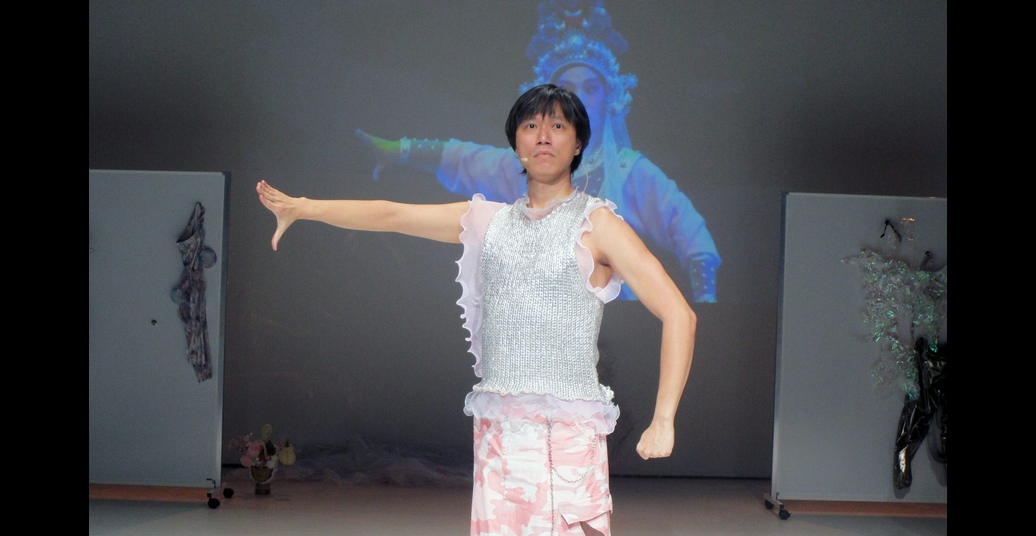Soldier M.I.A., by Ming Poon, picks apart the classic legend of Hua Mulan, before attempting to reassemble it for (and with) its modern audience. The work had its premiere on 23 November 2023 at the English Theatre Berlin.
Who is Mulan? What is Mulan’s gender? In which direction is she going?
Soldier M.I.A. begins with the four performers calling out these questions, among many others. Dancer Lee Mun Wai, dramaturg Dandan Liu, sound designer Sum-Sum Shen, and costume designer Tin Wang then briefly recount the Chinese legend of Hua Mulan. Believed to date back as far as 400 CE, it is the story of a woman who disguised herself as a man in order to join the army in place of her father. We are shown a clip from a Chinese opera in which Mulan is portrayed by a nándàn, a male performer playing a female role. Lee and Shen then take us through their first reactions to this excerpt from their respective fields of movement and sound, laying bare the creative process with disarming frankness and in stark contrast to the highly stylised original.
Would I go to war for my country?
As the performers bring their own personal experiences to bear on the subject, they seem to be looking for themselves in Mulan, trying the figure on for size as an avatar. We hear tales of military conscription, and growing up conscious of the threat of invasion. The performers are all from various Chinese backgrounds and their personal accounts, taken together with the place which Mulan occupies in Chinese tradition, firmly situate the work within a specific context. However, these questions around war, gender, and national identity are also made global enough to encompass those of us with different backgrounds and experiences, inviting us to share in the uncomfortable questions which the performers ask themselves. So under what circumstances would I go to war for my country?
Can you help me solve my Mulan problem?
Each performer brings to us a problem, or question, they have around the topic. Can we find a new body language for Mulan? How do I confront my own fear? The audience is invited to contribute to the work by selecting a new costume for Mulan, or working together on a sound archive. Throughout the piece, Shen informs us of the decibel readings of different sounds: a horse galloping, a fighter jet, a kiss. So as I watch audience members tentatively join the performers on stage I find myself asking, in processes of democratisation such as this, how we might consider which voices are allowed to be loudest.
Who gets to tell the story?
It is a refreshing idea to have the dramaturg, sound designer, and costume designer so present on stage, centring voices usually relegated to a name in the programme. The collaboration with the audience is another effective move towards decentralising ownership of the narrative. The work seems to be not just about the story of Hua Mulan, but about the act of storytelling itself, and the moments where we as individuals are confronted with myths, histories, and collective narratives. Many of these stories necessarily project a unified front, or claim a simple truth—in their quest to make imaginary borders solid, colonialism and war leave little space for nuance. Soldier M.I.A. seems to have a very real desire to muddy those waters, a timely antidote to temptingly oversimplified narratives.
Soldier M.I.A. by Ming Poon (Dance and Performance by Lee Mun Wai | Dramaturgy and Performance by Dandan Liu | Sound Design and Performance by Sum-Sum Shen | Costume Design and Performance by Tin Wang) premiered at the English Theatre Berlin on 23 November 2023 with performances until 25 November 2023, tickets at etberlin.de.




